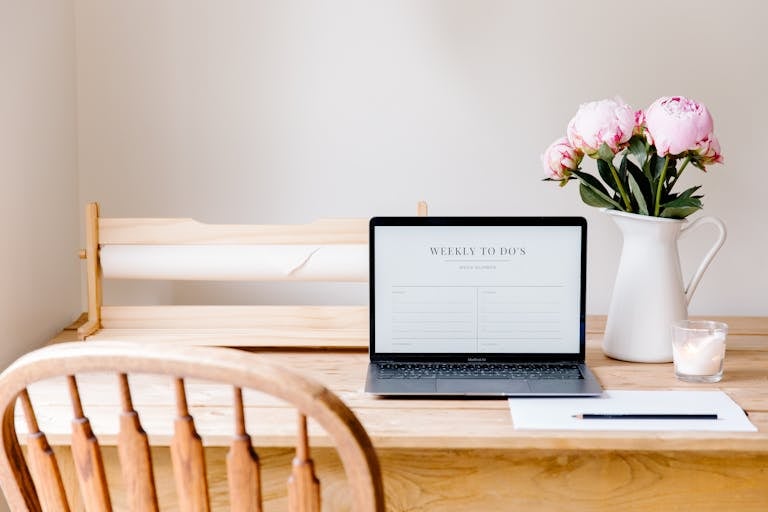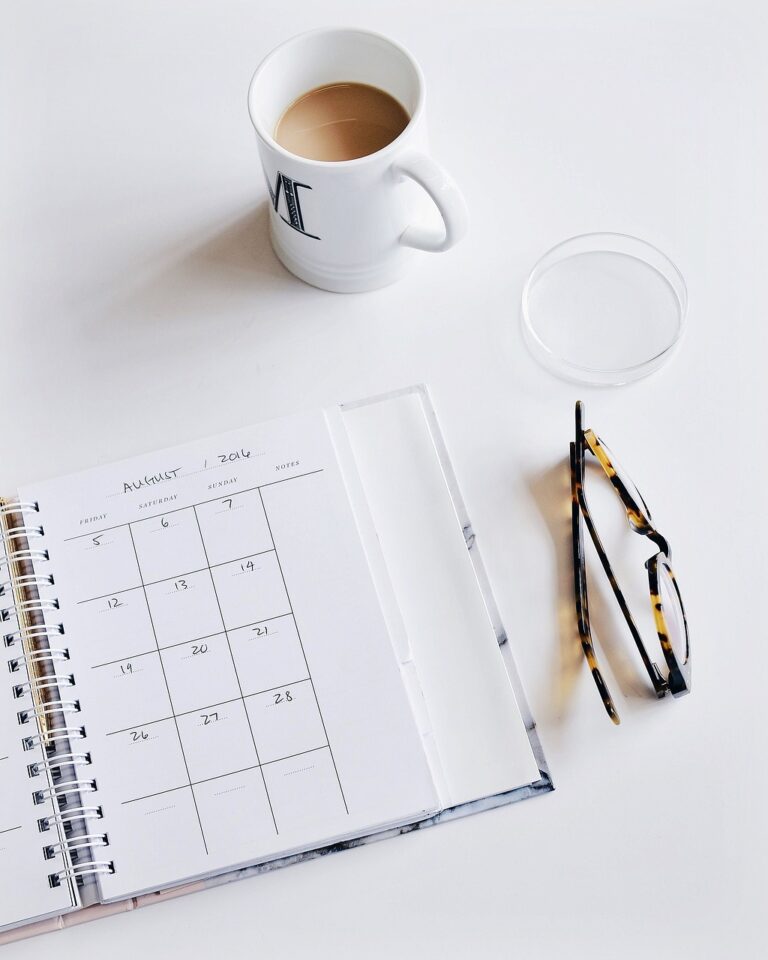How to Balance Work and Hobbies Effectively
Learning how to balance work and hobbies effectively is a skill that so many of us lack. With remote working on the rise, it’s harder than ever to draw the line between work time and me time. As a result, we’re feeling more burned out than ever before.
Don’t get me wrong – I’m a fierce WFH defender. Skipping the commute, working in my comfiest fit, and avoiding the office lunch-queue are luxuries I wouldn’t trade for the world.
But when the office is also your living room, there’s no physical way of clocking out. Without a solid routine for work-life balance, those perks lose their charm fast – especially when 5:30 rolls around, and your inbox is still staring at you from the same screen you were meant to be winding down with.
And, given that most of us are in no rush to return to the office 5 days a week, understanding how to balance work and hobbies effectively is crucial for keeping our collective sanity.
In this post, we’ll explore how to create boundaries, prioritise your time, and overcome the guilt that often accompanies taking time for ourselves. By the end, you’ll have the knowledge you need to understand how to balance work and hobbies effectively.

Why Is Balance Important In Life?
Before we look at how to balance work and hobbies effectively, it’s worth knowing why having a clear split between work and fun is important.
We live in a world that glorifies ‘grinding’ and ‘hustling’. People love to talk about how busy they are and wear their packed calendars like a badge of honour.
I think this is a toxic perspective. Of course, working hard should be rewarded. There’s nothing wrong with being proud of putting time and effort into your work. However, constantly prioritising work at the expense of rest and personal time can lead to burnout, stress, and a most damagingly, a general sense of unhappiness.
True success isn’t just about how much you work – it’s about creating a lifestyle that gives you time to enjoy the stuff you enjoy doing.
With that said, let’s look at some of the reasons why maintaining balance is so important.
1. Balance prevents burnout
By no coincidence, burnout has become a buzzword in the last few years. In fact, surveys show that 43% of people from 100 countries have experienced it. (1) It’s something that unites us globally – for all the wrong reasons.
And what is one of the leading causes of burnout? Workload. In other words, burnout happens in the absence of balance, when people feel that work is dominating their lives.
So, by learning how to find balance between work and hobbies, you can prevent the dreaded sense of burnout from creeping in.
2. You’ll increase your productivity
Balance results in productivity. While this might sound counterproductive, productivity isn’t about working constantly.
Staring at a screen for too long without giving yourself time to recharge will drain your energy and focus, making 10 times harder to finish whatever it is you’re doing.
On the flip side, when you work knowing you can look forward to a proper break will give you the boost you need to get stuff done. There’s no point in working yourself to death if there’s nothing to reward yourself with.
3. You’ll improve your mental health
Wellbeing is the result of balancing yourself, your relationships, and your work. Making sure you attend to all three of these areas helps you maintain a healthy mindset.
If you focus all your energy on one area of your life, not only does it completely drain your energy, but if things start to go wrong, it will feel far more consuming as you won’t have other areas of fulfilment to put things in perspective.
So, by keeping a balanced routine, you’re not putting all your eggs in one basket. No matter what happens in one area of your life, you’ll have other outlets to keep you afloat and feeling content.
4. You’ll become a more well-rounded person
A well-rounded person is someone who has the qualities necessary to succeed in a range of areas of life. This includes your career, your hobbies, your relationships, and your health.
By prioritising balance in your life, you’re essentially committing yourself to practising each of these three areas, helping you to get better at them.
It might feel weird to think of something like maintaining hobbies as a skill, but that’s exactly what it is – and so many of us suck at it because we can’t strike the right balance.
When you give yourself time to nurture all areas of your life, you’re not just getting better at managing your responsibilities – you’re becoming a more fulfilled, adaptable, and resilient person who can thrive consistently.
How To Balance Work and Hobbies Effectively: Actionable Tips
By now you should have a good idea of why balance in life is pretty much a non-negotiable.
Now, let’s look at 6 tips on how to balance work and hobbies effectively.
1. Set Clear Boundaries
Setting boundaries is arguably the most important thing to do when it comes to learning how to balance work and hobbies effectively.
As a people-pleaser myself, I know this can be incredibly difficult at first. Setting boundaries almost always requires saying no to someone, which I find super uncomfortable.
However, it is absolutely essential that have boundaries in place if you’re serious about finding balance in your life.
Define your work hours and stick to them. Granted, this can be easier said than done if you have a demanding job or unreasonable boss.
However, a lot of the time, we over-work because we put the pressure on ourselves, or we say yes to colleagues out of guilt and a misplaced sense of obligation.
So, communicate your boundaries politely and firmly, and make the effort to log off on time (guilt-free).
2. Schedule Your Hobbies Like Appointments or Meetings
Most of us wouldn’t dream of skipping a meeting at work or ditching a friend. Yet, when it comes to time we’ve planned for ourselves, we’re much more casual about cancelling or postponing it.
When we do this, we’re telling ourselves that our needs aren’t as important as other people (intentional or not). This sort of self-talk – conscious or unconscious – can be a huge roadblock when it comes to living a balanced lifestyle.
To truly find balance, you’ve got to recognise the value of both work and hobbies. If you don’t, you’ll always prioritise one over the other.
By scheduling hobbies in like they’re appointments (with a non-refundable deposit), you’re reinforcing their importance. This attitude will help you in creating a balanced lifestyle.
3. Prioritise quality over quantity
A lack of time is one of the most common reasons people struggle to balance work and hobbies. In other words, people believe they only have time for one.
Feeling this way is completely valid. I’m not here to deny the fact that most of us live incredibly busy lives, and it can be incredibly difficult to find time for ourselves.
However, I also think a lot of people (including myself) often say this because we overestimate the amount of time we need to do out hobbies. We have an all-or-nothing mindset that convinces us we need to dedicate hours every day to our chosen hobby or there’s no point.
But dedicating the time you can to your chosen hobby is a starting point to finding balance in your life. And, when you make this your starting point, you’ll see how much of a difference those little moments make in your general mood.
As a result, you’ll likely naturally find yourself prioritising those moments, and you’ll find the time to do whatever it is you value more often.

4. Be more productive
Being productive and intentional with your time will free up so much so much time you never thought you had, making it so much easier to balance work and hobbies.
If you’re constantly working overtime and leaving no room in the day for ‘me time’, it’s worth asking yourself whether you’re really making the most of your official working hours to minimise the chances of you needing to stay on late.
And by ‘making the most’ the most of your working hours, I mean being as productive and efficient in your day as possible. If the answer is no, and you spend a lot of the working day distracted, scrolling on your phone, then it might be worth actively trying to boost your productivity.
The good news is there are countless ways you can improve your productivity. This article on how to have a productive day lists all of my tried-and-tested techniques for getting stuff done in the smallest amount of time as possible.
Give them a go and you will free up time for your hobbies!
5. Make your hobbies accessible
I’m all about making my life as easy as possible. And when I say easy, I don’t mean being lazy. I mean getting rid of the unnecessarily complicated stuff and focusing on what matters.
So, if your hobby is running, lay your shoes and clothes out on the floor so they’re ready to throw on, and pick a simple route.
If you love playing the guitar, place it in a visible and easily accessible spot, and keep your sheet music or practice materials organised and within reach.
These tiny changes will make it so much easier to a) motivate yourself to do take time for yourself and b) avoid faffing and free up space in your calendar.
6. Recognise that balance isn’t perfect
Life is messy. As much as we want to create a perfect work-life routine with a harmonious balance, sometimes we just can’t, and that’s okay.
Some weeks, you’ll be crazy busy with work and deadlines, and you might not find the time you want to practise your hobbies. But there will also be weeks where things are quiet and deadlines are in the far distance, meaning you will have a ton of time to your own activities.
Try to embrace the ebb and flow and be kind to yourself if you can’t fit everything in. At the end of the day, balance is about creating a happy and healthy lifestyle, so beating yourself up over things not being perfect kind of defeats the purpose.
Learning How to Balance Work And Hobbies effectively without guilt
To learn how to balance work and hobbies effectively, you need to get rid of the sense of guilt that comes with doing so.
To do this, you need to recognise what guilt is, and why we feel it.
Guilt is an emotion that comes when we feel we have done something wrong. But, as we’ve discussed, balance is not bad. It’s the opposite – it opens the doors to a more fulfilling, productive, and happy lifestyle.
So, next time you feel guilty for taking time for yourself, recognise that the emotion is misplaced.
To challenge the feelings of guilt, reflect on why you think that you’re feeling guilty. Is it because you view time for yourself as an act of selfishness? Do you look at it as a form of laziness?
Reflect on your answers, journal, and remind yourself of all the reasons I’ve listed as to why that’s not the case. Do this every time the feeling of guilt creeps into your head, and eventually you’ll realise how unfair you’re being to yourself.
It will take time to break the association, but practise makes perfect. With dedication to cultivating the right mindset, you’ll be leading a life of balance – guilt-free – in no time.

Final Thoughts
I hope you’ve found these tips and tricks for learning how to balance work and hobbies effectively helpful. If you try them out, let me know how you go in the comments!
If you’re looking for some inspiration for things to do during your me time (because you deserve it), check out my article on 100 self date activities.
Sources:





